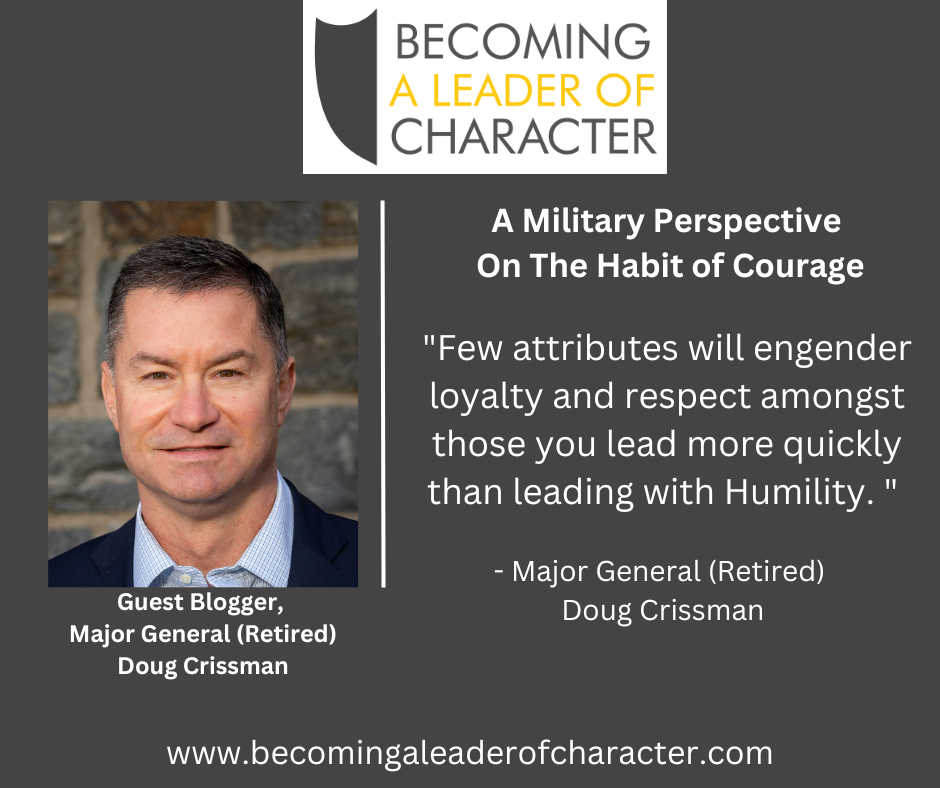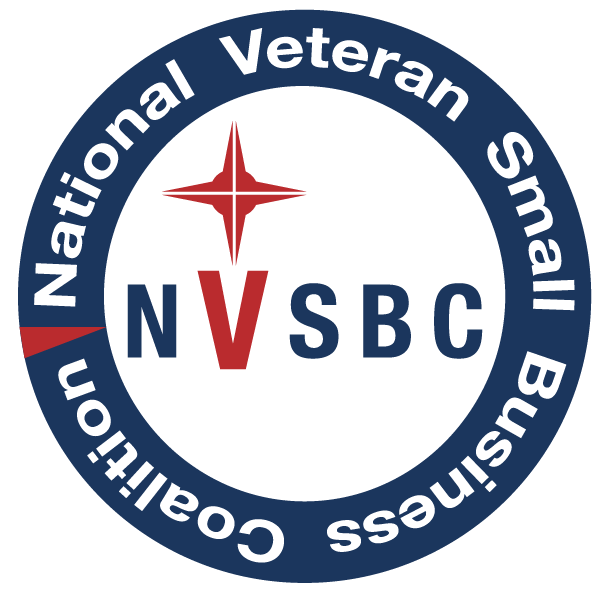Few attributes will engender loyalty and respect amongst those you lead more quickly than leading with Humility. – Guest blogger Major General (Retired) Doug Crissman
As a young leader, I felt it was important to come across as competent, capable, and
self-confident – always; no matter what. Never let my superiors, peers, or subordinates see me lacking a bias for action. I felt my team expected me to have the answers and that my job was to provide them in a clear, concise, and confident manner. While this approach wasn’t completely ineffective (or wrong necessarily), I recognized over time that it was incomplete.
As I matured as a leader, I realized I needed to tailor my approach to focus less on what I personally brought to the team and more about what I could help the team deliver through my leadership. In short, it was increasingly about how I could lead with Humility.
The Army describes Humility in its simplest form as the absence of arrogance. Competence, confidence, and character are still essential leader attributes, but leaders must also be highly self-aware and recognize their own limitations and strengths…and more importantly, incorporate that awareness and understanding into how they lead every day.
There is a desired range of Humility for leaders. Too little can be perceived as hubris, too much can cause leaders to come across as shy, timid, or even weak. Either extreme erodes the trust the organization is willing to place in the leader. The sweet spot is a range and is measured by how the leader is perceived rather than how the leader thinks they’re leading.
That sweet spot is where:
- The leader is perceived to be more concerned about the team’s success than their own.
- The leader uses the pronouns, WE and US more than I and ME.
- The leader isn’t afraid to ask for help (from the team, peers, or even superiors when necessary).
- The leader doesn’t pretend to have all the answers.
- The leader freely admits mistakes (and forgives honest mistakes from those trying to do what’s right for the team).
- The leader realizes that asking the right questions is often more important than having all the answers.
- The leader doesn’t equate the quality of the advice with the rank/title/position of the person offering it.
- The leader is seen to practice inclusive leadership and doesn’t play favorites.
- The leader is willingly ‘coachable’ themselves when they need to learn about something new or genuinely talked out of something by a peer, mentor, or direct report.
- The leader leads with a transformational (long-term, developmental) view versus merely a transactional (just ‘git er dun’) one.
Being humble is not a sign of weakness and few attributes will engender loyalty and respect amongst those you lead more quickly than leading with Humility. The more senior I became, the more I felt my role wasn’t always to tell the team what to do, but more often to bring out the best in the entire team and help guide them toward telling me what needed to be done….and more importantly, how we might best get after it…as a team.
I still led with a bias for action but did so more thoughtfully and constructively than I did when I was younger and with a deliberate and continuous effort to remain self-aware, approachable, and authentic.
Some people might let success and promotion go to their heads. Unfortunately, those people are too common. But Doug is an uncommon leader. He is a humble leader. Doug is a lifelong friend beginning in elementary school and through our years at West Point together. We have remained close as I (Dave) watched him become a Major General in the Army. I am proud to be his friend and the friend of so many great leaders from my West Point class of 1988. Doug and I have had some great leadership conversations over a scotch or two. Doug has made me a better leader through his words and example.
Major General (Retired) Doug Crissman served 33 years on active duty in the Army. He is a West Point graduate, Ranger qualified, and led soldiers in combat over multiple deployments to include brigade command during the War on Terror. Doug now shares his leadership wisdom through his efforts with the Thayer Leadership Development Group among other avenues. Ever the outdoorsman, he also works part time as an assistant manager at a sports and outdoors store. Learn more here: https://www.linkedin.com/in/douglas-crissman/
Here is a quick assessment that will take you 5 minutes to figure it out. Nobody will ever see your results but you.
Warning: If you are not going to be honest with yourself this is a worthless assessment.

To take the assessment use the QR code above or go to www.MYCHARACTERTEST.com







